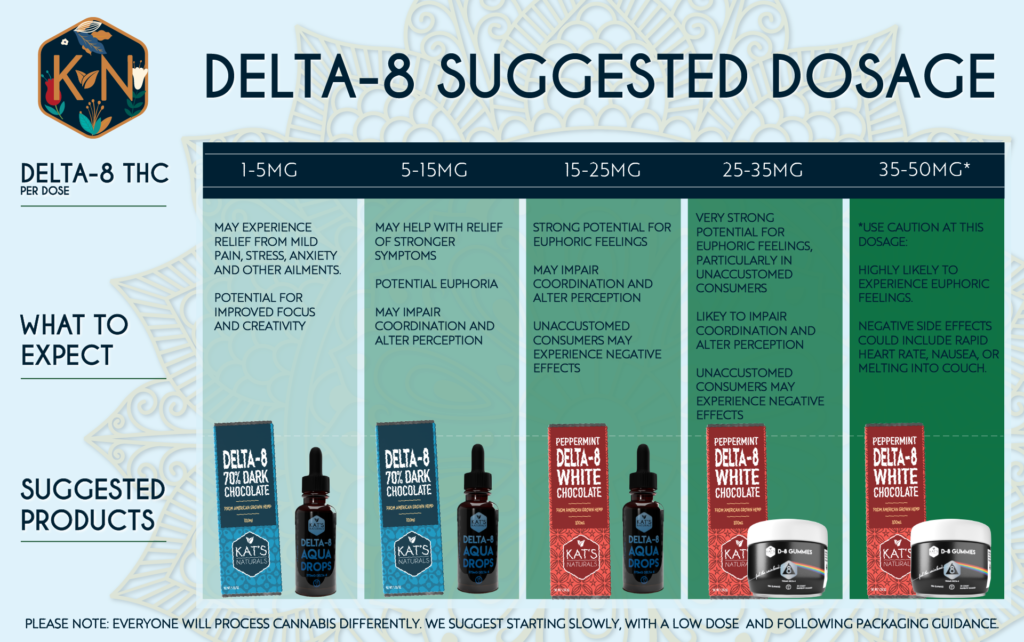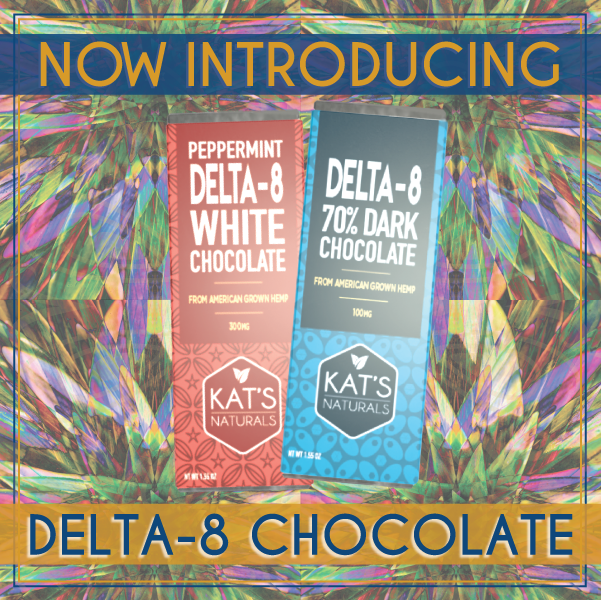No products in the cart.
What is Delta 8 THC: Learn More About The New Cannabinoid in Town
There’s a new cannabinoid on the market, and it’s called Delta-8 THC. Though often mistaken for the more common Delta-9 THC, Delta-8 is a different cannabinoid with its own unique properties.
Today, this article will explore those properties, see what makes Delta-8 THC different, and examine why this cannabinoid is becoming so popular.
What is Delta-8 THC?
First, it’s essential to define Delta-8 THC. Put simply, Delta-8 THC is a cannabinoid; more specifically, it’s a degraded form of THC that naturally occurs in the cannabis plant in minute concentrations. Commercial extractors obtain it through a combination of selective breeding and molecular isolation. However, manufacturers also synthesize it from CBD by using chemical processes.
Is Delta-8 THC legal?
Similar to Delta-9, Delta-8 THC does produce a psychoactive effect. Consequently, you may be wondering if Delta-8 THC is even legal. While there’s a little bit of a grey area, the short answer is yes.
In 2018, the DEA declared that all hemp products containing less than 0.3% Delta-9 THC were legal without specifying any restrictions on using Delta-8 THC. As a result, the general consensus is that it’s a minor cannabinoid, legal in any concentration provided it comes from the hemp plant. This news means that you can safely buy pure Delta-8 THC products.
How does Delta-8 THC work in the body?
On a molecular level, Delta-8 THC differs from Delta-9 THC because of the location of one of its chemical bonds, which impacts how it binds and interacts with the body’s endocannabinoid receptors. One consequence of this difference is that Delta-8 THC is roughly half as strong as Delta-9.
However, other than that, both cannabinoids work pretty similarly. Like Delta-9, Delta-8 THC binds with the body’s CB1 receptors, which are concentrated in the central nervous system. It also interacts with CB2 receptors, though researchers are still learning how they work together.
Delta-8 THC vs. Delta-9 THC: what’s the difference?
Delta-8 and Delta-9 THC are similar yet distinct. Both are THC molecules and, while Delta-8 works in the brain slightly differently, they both produce a psychoactive effect.
Some people believe that Delta-8 is like Delta-9 THC minus the anxiety. Numerous articles claim that Delta-8 THC provides a psychoactive effect without inducing paranoia.
Without proper education beforehand, Delta-8 THC can have adverse effects that can last for up to 12 hours.
But the psychoactive effect that people encounter will differ from the one that Delta-9 THC provides. From my personal experience, Delta-8 THC produces a more clear-headed feeling.
The therapeutic benefits of Delta-8 THC
Many new studies into this cannabinoid’s therapeutic properties are emerging, and researchers are starting to find out what it can do. Predictably, given their similarities, many of Delta-8 THC’s therapeutic benefits seem to match those of Delta-9 THC.
1. Analgesic and anti-inflammatory effects
After studying mice with corneal injury, researchers believe that the topical application of Delta-8 THC can reduce both pain and inflammation. Another study on rats also suggests that delta-8 THC can reduce pain.
2. Anti-anxiety properties
Research suggests that Delta-8 THC is capable of alleviating anxiety. In some cases, people believe it produces a calm, focused high without the anxiety that’s usually associated with Delta-9 THC.
3. Ability to alleviate nausea
Research has also shown Delta-8’s ability to mitigate the symptoms of nausea. In a 1995 study, researchers observed eight pediatric cancer patients over two years. Afterward, they discovered that patients who ingested Delta-8 THC didn’t experience any vomiting before and 24 hours after their cancer treatment.
4. Ability to stimulate appetite
Delta-8 THC may also be an effective appetite inducer. Some research has even found it to be a significantly stronger appetite stimulant than Delta-9. During an animal study, researchers gave mice a low dose of Delta-8 THC over 50 days. And the dosage led to a 22% increase in food intake compared to controls.
Finding your optimal Delta-8 THC dosage
Just like any cannabinoid, there’s no one-size-fits-all dosage of Delta-8 THC. But as a general rule, people can handle a little more Delta-8 THC than Delta-9 THC.
From my experience, a person can take around twice as much of the cannabinoid. For example, if someone likes to take three milligrams of Delta-9 THC, they can probably handle six milligrams of Delta-8 THC.
However, as with any other cannabinoid, it’s always best to start low and closely monitor the effects. I’d recommend starting with a tincture or chocolate. Check its concentration of Delta-8 THC in milligrams per milliliter and divide that by 20 (roughly the number of drops per milliliter/mg per square) to work out the concentration of Delta-8 THC in a single drop/square. Then, start at a dose of around three milligrams and steadily increase it if necessary.
Also, people should wait around 45-90 minutes for the remedy to take full effect before increasing their dosage. It’s important to take it slow and steady.
Why take Delta-8 THC?
So why try Delta-8 THC instead of just sticking with Delta-9 THC? After all, they seem so similar.
While that’s true, in states where higher doses of Delta-9 THC are illegal, Delta-8 THC can be a great alternative to experience many of the same benefits.
Secondly, the more clear-headed experience that people get with Delta-8 THC will certainly appeal to some consumers. Lovers of sativas, in particular, are likely to appreciate the focused high the cannabinoid produces .
Therefore, there are merits to trying out Delta-8 THC. It boasts many of the therapeutic benefits of Delta-9 THC. It’s more readily available in many states and, for some people, it may even come with fewer adverse side effects.
But not everyone’s experiences with it are positive. Those who are interested in trying the cannabinoid should know what to expect beforehand. Delta-8 THC users should start with a low dose and work up to an amount they’re comfortable with.
Even more important, consumers should look for a Delta-8 THC product that can pass a residual solvents and heavy metal test. Because so many manufacturers use chemicals to synthesize Delta-8 THC, people need to make sure they use products that don’t have any chemicals or impurities in the remedies.
As with any cannabinoid, education is the key to enjoying a wholesome and healthy experience with Delta-8 THC. If consumers purchase premium products and start with low doses, they should have a great experience.
Share this article with someone today so that they have the best experience with Delta-8 THC!






